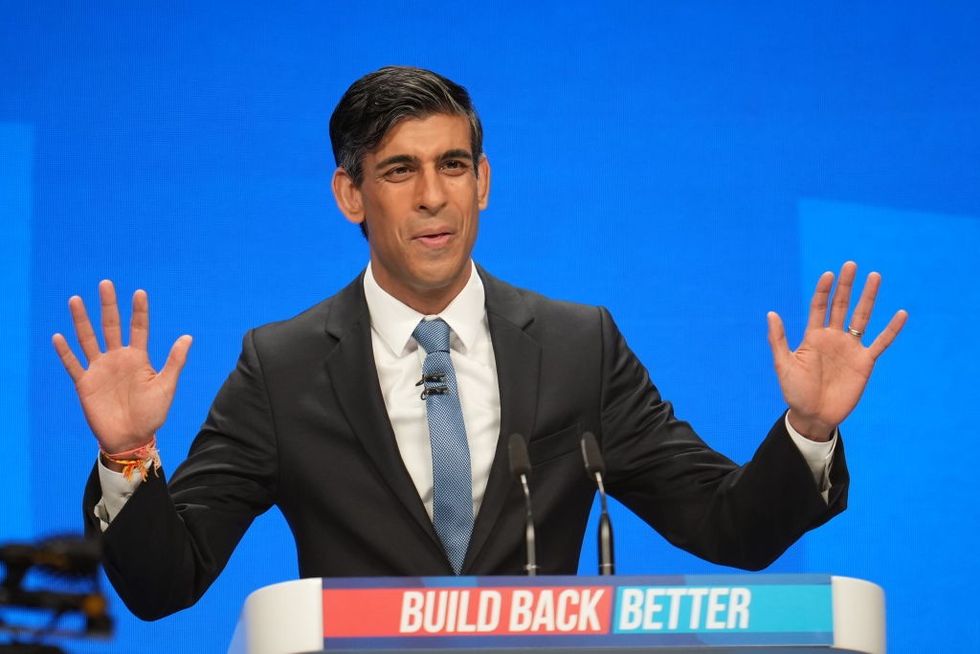As the volatile Westminster mood shifts daily, predictions are perilous.
But the bookmakers odds capture the fragility of the prime minister’s position, giving Boris Johnson a one in three chance of remaining in office to the end of this year, and only a one in five chance of fighting a general election as leader.
Through the pandemic, this government has enjoyed something very powerful in politics: the benefit of the doubt.
The public felt that an unprecedented crisis made some mistakes inevitable, but seeing those who made the rules break them has been harder to forgive. Johnson’s approval ratings have dipped below the level from which any previous prime minister has bounced back to win a General Election. If he does not recover, the question for Conservative MPs may become less “if” but “when” to make a change.
If Britain gets a new prime minister this year, Rishi Sunak starts as the favourite So is Sunak ready to be prime minister and are the Conservative Party and the country ready for Rishi?
Being the frontrunner can be perilous, but Sunak has a strong hand. His frontrunner status will attract MPs hoping to back a winner, so his is likely to be one of the two names put to the party membership in the event of a leadership contest.
Though Sunak has sat around the Cabinet table for fewer than three years, being the pandemic chancellor means the public can see him in the top job. He has a much higher profile than John Major did in 1990. Other potential candidates - including foreign secretary Liz Truss - are better known by the party than the public. Truss’s popularity with party members comes from becoming the most vocal enthusiast for Brexit, despite voting Remain in 2016. Sunak performs best with Conservatives who voted Remain, but will be able to remind his party that he was pro-Brexit before the result came in.

Sunak would be Britain’s first British Asian Prime Minister – and the first ethnic minority prime minister of modern times (though Benjamin Disraeli was the 19th century pioneer). That historic fact would resonate internationally. But political and media scrutiny of his prospects does not focus primarily on this. Sunak’s main headache is the economy, not his ethnicity. His approval rating has been above that of the government – with the furlough scheme among its most popular policies – but tax rises, energy bills and rising inflation will test that.
Sunak’s British Indian heritage is less of a factor than Margaret Thatcher’s gender was in 1975, when the unfamiliarity of a female leader proved a surmountable challenge. Given the party-gate shenanigans that have so damaged No10, Sunak being a teetotal Hindu may be seen as a positive advantage.
The only credible answer to the question “is Britain ready for a non-white Prime Minister” in 2022 is “Yes, obviously”. Ironically, it tends to be the liberal-minded who doubt this more. This is a phenomenon of “imputed prejudice”. Those who would be absolutely fine with an ethnic minority prime minister fear a backlash effect by others - the general public, ‘Red Wall’ swing voters, or Conservative party members. There is next to no evidence for this fear. Conservative party members are rarely the most metropolitan or “woke” section of society, but YouGov’s polling on perceptions of potential candidates – where Sunak has the broadest appeal, while Michael Gove and Priti Patel struggle most – show that ethnicity is neither decisive nor significant.
Yet it is only during this last decade that ethnic diversity has become a “new normal” across British political parties. There were no Asian or Black Tory MPs at all when this century began. The Conservatives had elected their first Asian MP in 1895, but did not elect a second until 1992, or a third until 2005. So the Sunak generation undoubtedly has new opportunities to reach the top. That does not mean that the party has eradicated racism. The Cabinet Office is holding an inquiry into the testimony of Nus Ghani MP that the reasons she was given for her sacking were discriminatory. Casual prejudices against Muslims, in the party as in wider society, are more broadly held than against other ethnic or faith minorities. Leadership candidates also benefit from a version of the ‘but I don’t mean you’ syndrome, where contact or familiarity defuses suspicion of a broader group of nameless people.
In a leadership contest, the party will debate tax and spend, the green agenda and the economy, Brexit and immigration. As others discuss the meaning of his historic candidacy, Sunak will probably stick to a meritocratic message - that he asks to be judged on whether he is the best candidate for the job.
MPs and party members will focus most on one simple question – ‘who can win the next election?’ If they think Sunak looks like the best answer, the party will be ready for the Rishi era to begin.
Sunder Katwala is the director of British Future thinktank




Sunder Katwala: Is the UK ready for Rishi Sunak?